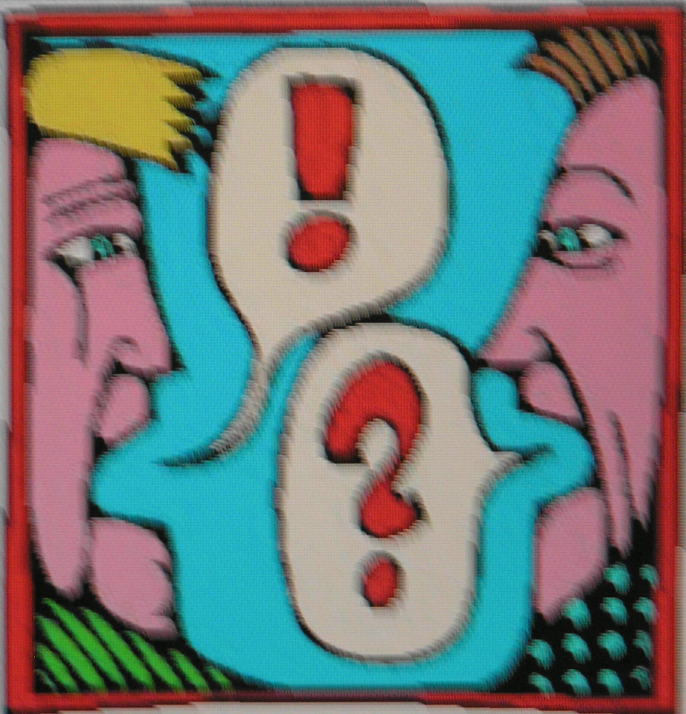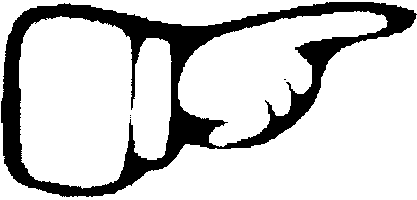
- •Донецький національний університет економіки і торгівлі імені Михайла Туган-Барановського
- •Economics Today
- •Content
- •Texts for Individual Reading
- •Передмова
- •Unit 1. What does economics study?
- •Vocabulary.
- •What does economics study?
- •Money price human wants scarcity
- •What does economics study?
- •Pronouns
- •Unit 2. Different Economic systems.
- •Vocabulary.
- •Different economic systems
- •Outstanding economists.
- •Unit 3. Economics as a social science.
- •Vocabulary.
- •Try to explain the above mentioned economic notions as you understand them, by your own words.
- •Economics as a social science.
- •Economics as a social science
- •Outstanding economists
- •Unit 4. Economics as a policy.
- •Vocabulary.
- •Economics as policy.
- •Economics and policy
- •Outstanding economists.
- •Unit 5. Main economic concepts.
- •Vocabulary.
- •Main economic concepts.
- •Outstanding economists.
- •2. Define:
- •Unit 6. Market, Supply and Demand.
- •Vocabulary.
- •Market, supply and demand
- •What money can’t buy
- •Outstanding economists.
- •Unit 7. Prices and their formation.
- •Vocabulary.
- •Price and its formation.
- •Past Tenses
- •When prices draw us.
- •Outstanding Economists.
- •2. Value:
- •Unit 8. Taxes and Taxation.
- •Vocabulary.
- •Taxes and taxation
- •Past Tenses Past Perfect Simple
- •Past Perfect Continuous
- •Will Germany Start Tax Reform?
- •Crackdown on “alcohol disorder zones”
- •Outstanding economists.
- •Sources of government revenue
- •Public spending
- •Unit 9. Business organization.
- •Vocabulary.
- •Forms of business ownership in the u.S.A.
- •The Formal Organization.
- •Up and Down of People Express
- •Burr’s Business
- •3. Necessity:
- •Unit 10.
- •Forms of business small business
- •I. Can you stick with it?
- •How to make business plan.
- •The Passive Voice
- •Unit 11. Franchising.
- •Vocabulary.
- •Franchising.
- •Evaluate your franchise opportunities.
- •Mc’Donald’s : burger and fries a la français.
- •Invest:
- •5. Tax:
- •Unit 12.
- •International Trade.
- •International trade.
- •How to avoid business blunders abroad.
- •Vocabulary to Text 2.
- •Advertising.
- •Vocabulary:
- •Answer the questions:
- •Economic theories.
- •Vocabulary:
- •Answer the questions:
- •Main economic concepts.
- •Vocabulary:
- •Answer the questions:
- •Management.
- •Vocabulary:
- •Answer the questions:
- •Marketing.
- •Vocabulary:
- •Answer the questions:
- •Types of economic systems.
- •Vocabulary:
- •Vocabulary:
- •Practical Tasks:
- •Text 2. Classical Theories.
- •Vocabulary:
- •Practical Tasks:
- •Text 3. The Meaning of Management.
- •Vocabulary:
- •Practical Tasks:
- •What is you understanding of management?
- •Vocabulary:
- •Practical Tasks:
- •Text 5. Management Activities.
- •Vocabulary:
- •Practical Tasks:
- •Text 6. Classical Theories.
- •Vocabulary:
- •Practical Tasks:
- •Text 7. Fayol's Principles of Management.
- •Vocabulary:
- •Practical Tasks:
- •Text 8. F.W.Taylor and Scientific Management.
- •Vocabulary:
- •Practical Tasks:
- •Text 9. The Principles of Scientific Management.
- •Vocabulary:
- •Practical Tasks:
- •Text 10. Scientific Management after Taylor.
- •Vocabulary:
- •Practical Tasks:
- •Text 1. Comments on the Scientific Management School.
- •Text 2. L.F.Urwick.
- •Text 3. E.F.L.Brech.
- •Text 4. Max Weber and the Idea of Bureaucracy.
- •Text 5. Bureaucracy.
- •Text 6. Bureaucracy after Weber.
- •Questions for Discussions to texts 1-6.
- •Nobel prize winners.
- •1975: Nobel Prizes.
- •Money in our everyday life quotations. Attitudes to money.
- •Giving away money.
- •Money and everyday life.
- •Money and the family.
- •Money at work.
- •Money madness.
- •Possessions.
- •The economic model.
- •The psychology of money.
- •The very rich.
- •Young people, socialisation and money.
- •Poetry.
- •I have some fe a rainy day underneath me bed,
- •Is dis culture yours, cause it is not mine
- •It could do good but it does more bad
- •The coin speaks.
- •The hardship of accounting.
- •The millionaire.
- •Keys unit 1.
- •Comprehension check.
- •Unit 2.
- •Comprehension check.
- •Unit 3.
- •Comprehension check.
- •Unit 4.
- •Comprehension check.
- •Unit 5.
- •Comprehension check.
- •Unit 6.
- •Comprehension check.
- •Unit 7.
- •Train and check yourself
- •Unit 8.
- •Unit 9.
- •Comprehension check.
- •Fill in the chart
- •Unit 10.
- •Unit 11.
- •Comprehension check.
- •Unit 12.
- •Keys to the texts for individual reading
- •Economics Today
Unit 5. Main economic concepts.
Pre-reading tasks:

 Look
at these photos and describe them.
Look
at these photos and describe them.
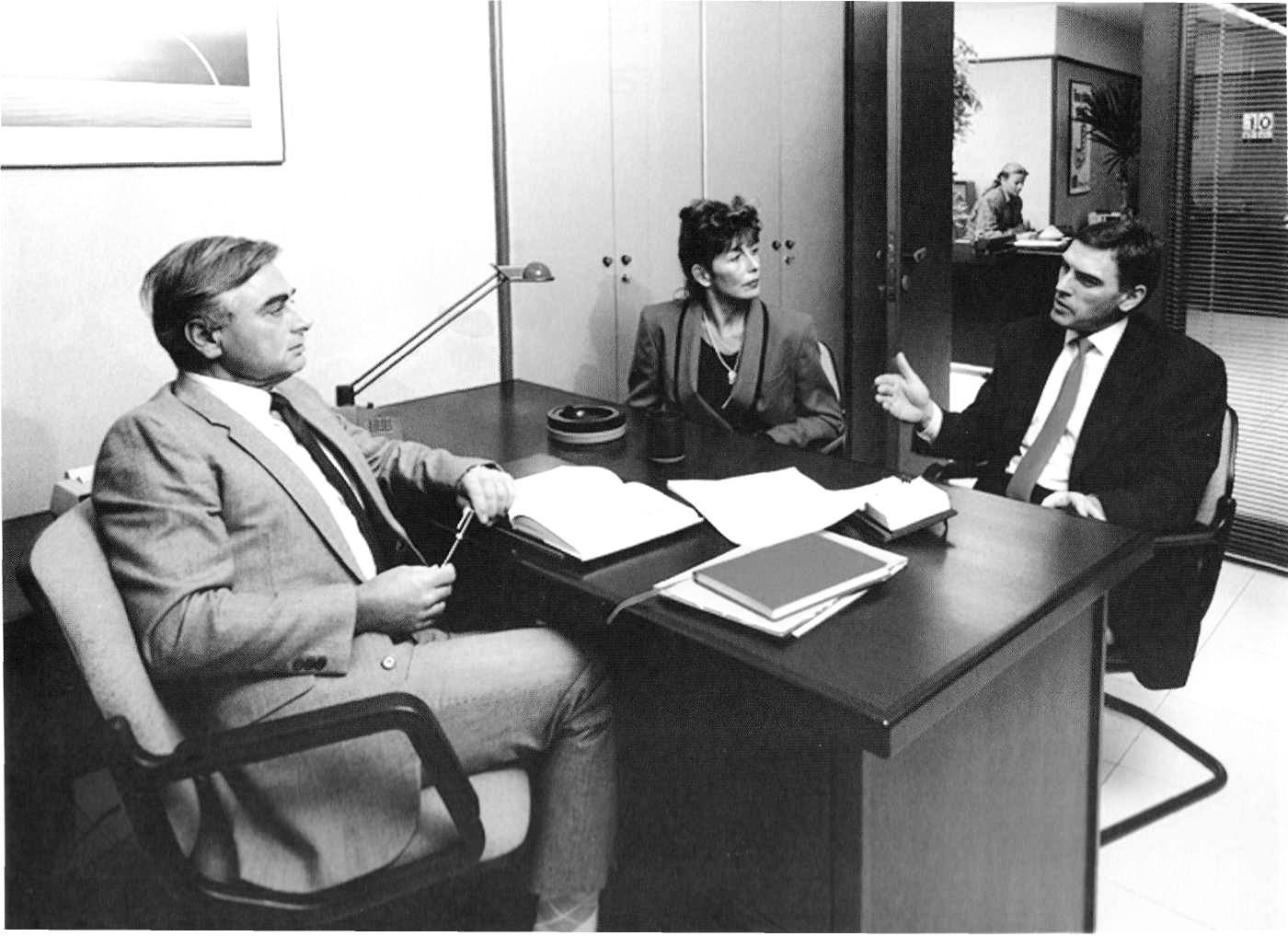
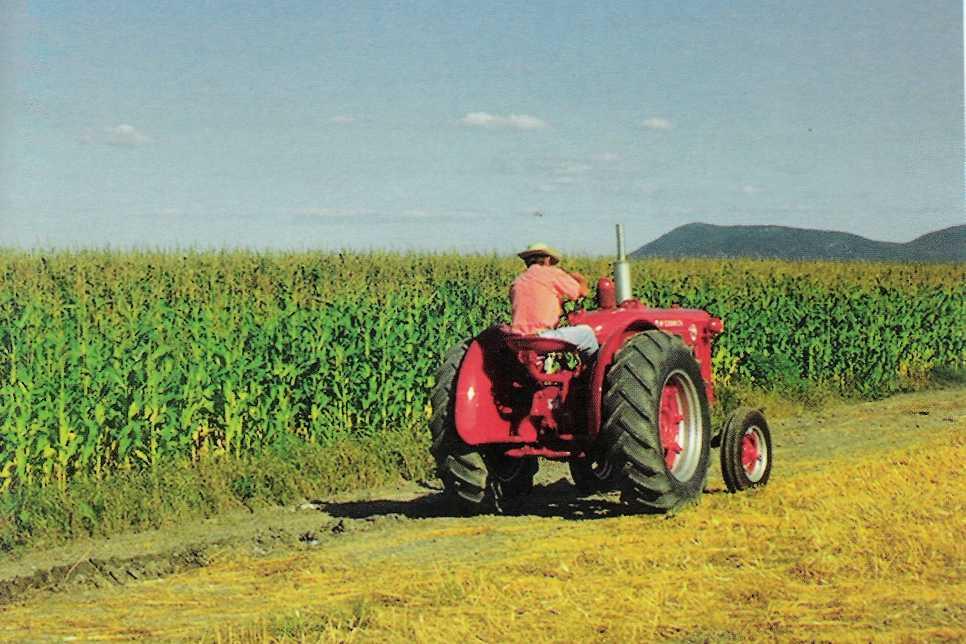

What is in common between these photos? What connects them?
Can you give economic terms to enterprise and people working at it, to land, to money?
Can enterprise work without people?
Can enterprise work without manager or director?
Why do we use money?
Why does money exist?
Discuss
the quatation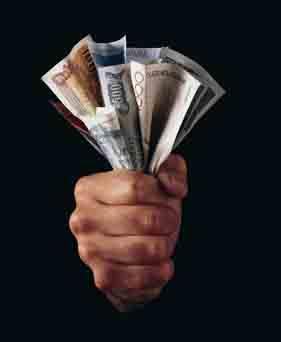
“ … Money is the last enemy that shall never be subdued. While there is flesh, there is money – or the want of money; but money is always on the brain so long as there is a brain in reasonable order. …”
Samuel Butler, Notebooks, 1912.
Vocabulary.
1. Read the definitions of the following economic concepts, try to remember them and be ready to use.
Distribution – the dissemination of goods and services in a market through the ordinary channels of trade.
Ownership – the right to have or possess.
Means of production – total combination of labour, means and subjects used in production of material wealth.
Human resources – stock of human capital.
Underground economy – economic activity that is not reported.
2. Match English and Ukrainian equivalents.
|
1. definition |
|
|
2. economic system |
|
|
3. factors of production |
|
|
4. to tackle the problem |
|
|
5. distribution |
|
|
6. consumption |
|
|
7. failure |
|
|
8. entrepreneur |
|
|
9. Gross National Product, GNP |
|
|
10. underground economy |
|
|
11. revenue |
|
|
12. per capita |
|
|
13. total value |
|
|
14. basic economic notions |
|
|
15. real estate |
|
|
16. means of production |
|
|
17. to satisfy needs |
|
Read the text, be ready to retell it.
Main economic concepts.
Not only students in economics, but all educated people need understanding of the basic economic notions. But don’t be surprised that various scientists define them by their own in spite of their importance. Dictionaries also give different definitions. So, Webster’s New Collegiate Dictionary defines economics as “a social science concerned chiefly with description and analysis of the production, distribution and consumption of goods and services.” But may be you will like more the definition from Macmillan Dictionary of Modern Economics: “Economics is the study of the way in which mankind organizes itself to tackle the basic problem of scarcity.” Means of production and human resources are the basis for economic development of any society. The ownership of means of production defines the type of economic system. Economic system is a way of distributing a society resources to satisfy its citizens’ needs. But all economic systems have certain features in common. A society’s resources are referred to by economists as the factors of production. Land, as one of the factors of production, includes not only real estate, but also minerals, timber, water, raw materials. The second, labour, consists of human resources, used to produce goods and services and entrepreneurs. Entrepreneurs organize land, labour and capital in order to produce goods and services more efficiently and accept the risk of failure. The third factor of production is capital; the machines, tools, buildings are used to produce goods and services and money is used to buy other resources. But how can all these factors be evaluated especially when we compare economies of different nations? So, there exists GNP, Gross National product. It is total value of all final goods and services produced by an economy over a year’s time. But figures themselves don’t reflect the real situation. It can be depicted when the nation’s total GNP is divided by its population. It is called per capita GNP.
Underground economy is not reflected in GNP figures. Revenues from illegal drug sales, gambling and other crimes are not included in GNP because they are not reported.
|
COMPREHENSION CHECK |
|
Exercise 1. Are these statements true or false?
Various scientists define economic notions in the same way.
Economics is a social science which studies human behaviour as a relationship between ends and scarce means (мета і дефіцитні засоби).
Economics is a science about people and choices they make.
The type of economic system is defined by the ability of government to satisfy people’s needs.
Economic system is a way of consuming all products.
Main factors of production are gas, oil and high level of mechanization.
Land, labour, capital and entrepreneurs are the factors of production.
Many economists now consider entrepreneurs to be one of the factors of production who organizes land, labour and capital for effective work.
GNP is the quantity of all goods and services produced over the year’s time.
The revenues from underground economy are not reported to avoid taxes.
Exercise 2. Answer the following questions.
What are the main economic concepts?
Do all economists give the same definitions for the same notions? Explain your point of view.
What types of economic systems do you know?
What defines the type of economic system?
How do the nations distribute their resources?
What are the main factors of production?
Do you consider the entrepreneur to be one of the factors of production? Why?
What role does GNP play in economic life of every country?
9. How is the revenue per capita defined? Why is it necessary to know this figure?
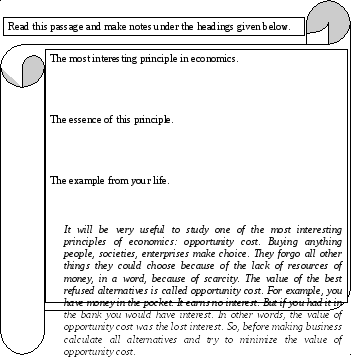
3. What role does the underground economy play in the economic life of every country?
|
Let’s ponder!
|
|
|
|
GRAMMAR Active Voice. Present Simple and Present Continuous. | ||||
|
|
Present Tenses |
| |||
|
|
Simple |
| |||
|
|
V (-s; - es) |
| |||
|
Repeated action |
|
From time to time OPEC raises oil prices. | |||
|
Action characterizing people an natural phenomena |
|
People like when they are given discount. It’s alaways hot in Sahara. | |||
|
Usual action |
|
To get news businessmen usually read the site “Business World”. | |||
|
|
Continuous |
| |||
|
|
am |
|
|
| |
|
|
is |
V ing |
| ||
|
|
are |
|
| ||
|
Now, at the moment, at present |
|
This economic system is working smoothly at present. | |||
|
Around now |
|
Don’t tackle this problem. I’m solving it. It concerns GNP. | |||
|
Future action planned beforehand |
|
The graduates are starting new jobs next week. | |||
|
With “always” in the meaning “too much” |
|
Entrepreneurs are always organizing their business and accepting the risk of failure. | |||
|
|
TRAIN AND CHECK YOURSELF | ||||
I. Make up sentences.
Development, means, resources, society, of, any, for, of, are, and, production, economic, human, basis, the.
Production, ownership, system, on, of, means, of, the, the, type, the, the, defined, is, by.
Satisfy, needs, society, resources, system, economic, a, people’s, to, a, is, of, way, distributing.
Common, all, have, systems, features, in, certain, economic.
Production, land, factors, capital, the, are, labour, of.
Goods, way, services, land, entrepreneurs, most, capital, the, and, efficient, labour, producing, for, organize, in, and.
Year’s a, GNP, value, time, and, goods, all, is, the, of, over, services, produced, final, total.
GNP, population, GNP, when, capita, is, its, by, total, divided, per, we, nation’s, get.
Into, underground, revenues, not, are, GNP, from, included, economy.
II. Choose the right tense: Present Simple or Continuous.

1. China is/is being one of the biggest and best producers of fakes. 2. The country is selling/sells reproductions of expensive foreign watches much cheaper of the price of the real thing. 3. At the same time Swiss export of watches to China is growing/grows fast. 4. It exceeds/is exceeding $150 mln. 5. “Omega”, part of Switzerland’s Watch Group, opens/is opening its first store in Beijing. 6. This shop is/is being in the city centre. 7. But a few kilometres east of the centre hawkers display/are displaying trays with fake watches. 8. A man’s “Speedmaster Broad Arrow” that costs/is costing more than $12.000 at the new Omega’s shop, goes/is going for less than $80 in fake form. 9. Nevertheless, the head of Omega’s operation department in China says/is saying that their sales grows/are growing by about 15% a year. 10. And at the same time there is no sign that the pirates go/are going to stop their business.
III. Choose appropriate substitute from the box for the underlined words.
|
Avoid Enlarge Manufacturing Barter deals |
take part get away administration not registered secret |
ready money commodity spreading revenue detection |
1. High tax rates increase the incentive of individuals to participate in the underground economy to escape taxation. 2. The underground economy covers unreported production and exchange often conducted in cash to avoid possible exposure. 3. There are two major components of underground economy: (1) production and distribution of illegal goods and services and (2) the nonreporting of transactions involving legal goods and services. 4. Drug trafficking, smuggling, prostitution and other criminal activities are examples of the first component. 5. Income from such activities is generally unreported to escape detection by low enforcement authorities.
IV. Fill in the gaps. Economic notions of Unit 5 may be helpful.
1. Economics is the study of how societies combine and allocate (1) ______ to satisfy (2) ______. 2. (3) _______ and (4) ______ are produced because individuals want them. 3. The concept of wants leads to the fundamental economic concept of (5) ______. 4. To produce (6) ______ firms will need to combine resources with the factors of production. 5. Society resources are referred to by economists as the (7) _______. 6. (8) _______ is not only soil but mineral deposits, oceans, forests, rivers, etc. too. 7. (9) _______ is human input in the production process. 10. The human input which initiates the production process and organizes land, capital and labour is called (10) _______. 11. (11) _______ of resources generates their value and affects the costs of production.

